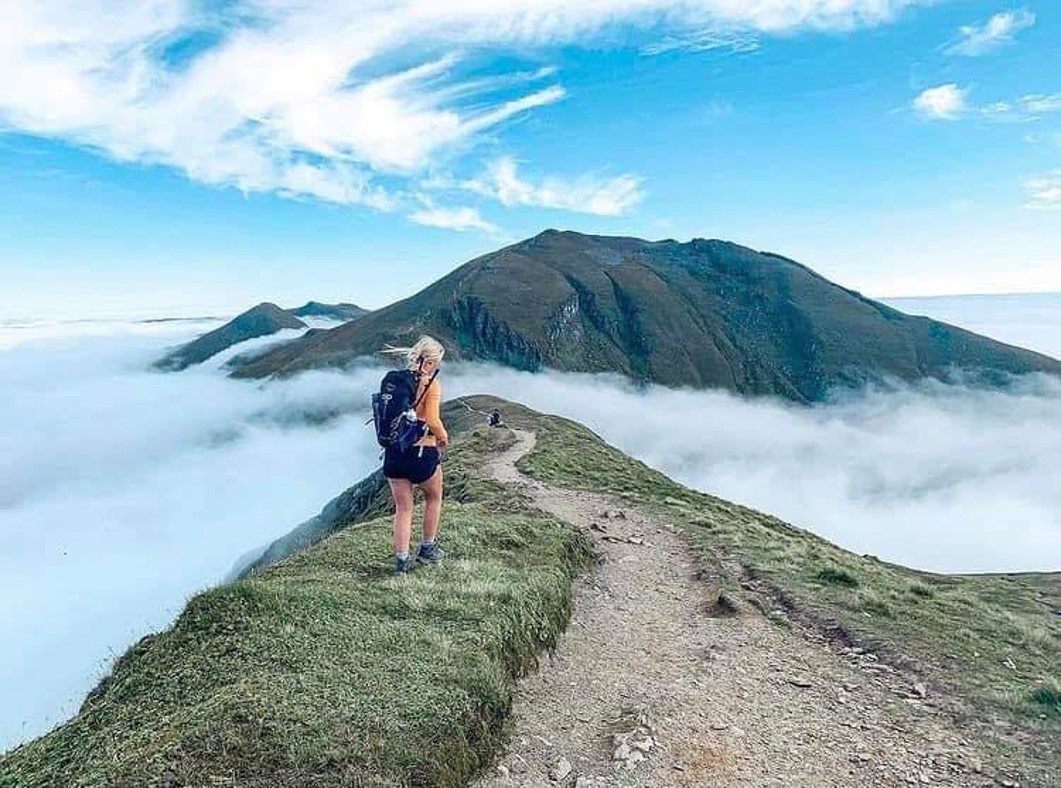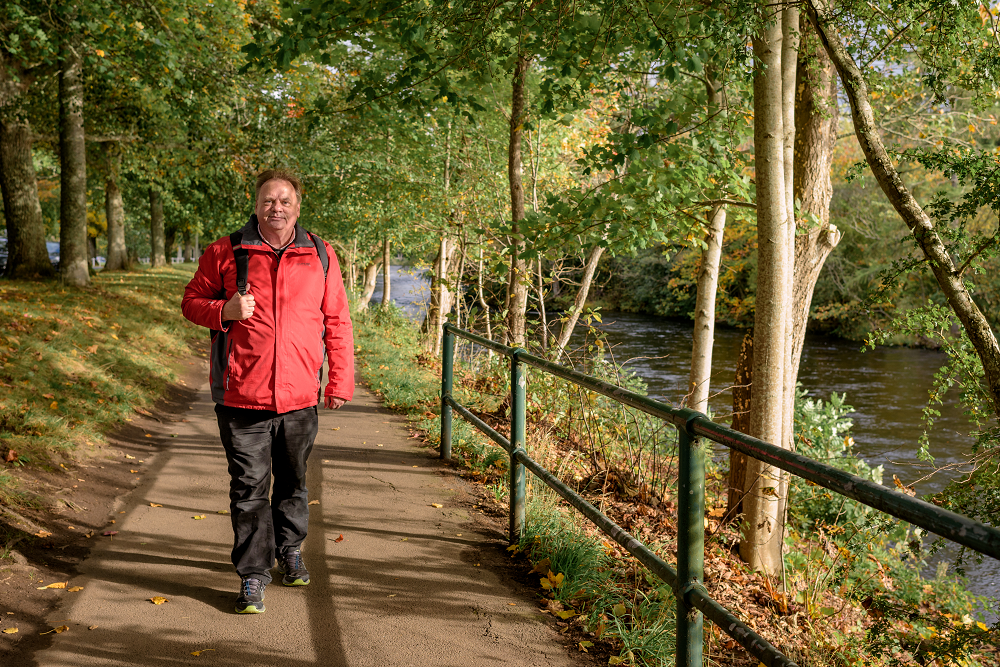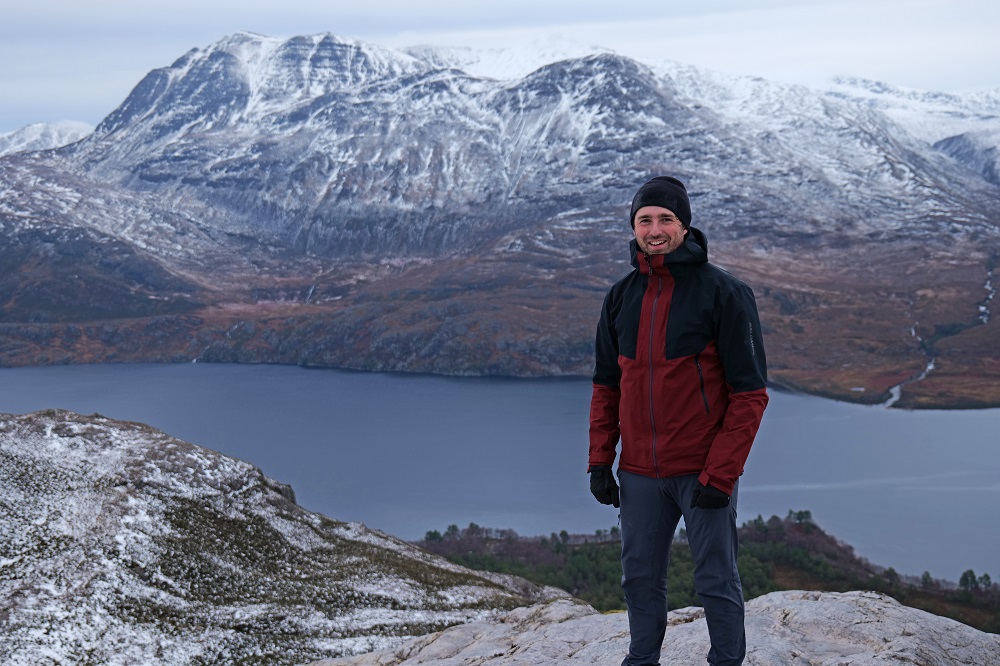Stephanie is a member of the Young People's Sport Panel. In this article she shares her personal experience of the benefits of physical activity, and her passion for hill walking and Munro climbing.
What is your physical activity routine and why is it important to you?
I have struggled with depression and anxiety for many years now and when I was first diagnosed, I struggled to find ways in which to cope with it. I then found Munro climbing and hill walking six years ago. Pre-lockdown, I was climbing at least two Munros per week and my goal is to complete all 282 Munros.
Although I cannot physically do this at the moment, I have been spending some time in lockdown planning for future Munro climbing adventures around Scotland. Although there are days I am struggling with mental health and not being able to get out and climb, I have been ensuring I am getting out to walk the dog, running and spending time outdoors.
I am really missing the mountains; however, I know they will be there waiting for me when this is over.
Why is regular physical activity important for our mental wellbeing?
Regular physical activity is so important for our mental wellbeing especially during these difficult times. There are so many options when it comes to physical activity and sport and it is about finding what you enjoy the most.
Physical activity releases feel-good hormones that make you feel better in yourself and give you more energy. Furthermore, regular physical activity can help with better sleep, improve self-confidence and decrease stress.
The Young People’s Sport Panel #WalkAndTalk Initiative is a great way to get outdoors for walk and chat to friends or family virtually. Or if you live close to a friend or family member you could go for a socially distanced walk with them!
 What do you enjoy most about hillwalking and Munro climbing?
What do you enjoy most about hillwalking and Munro climbing?
When I go hill walking, I mostly hike solo. Munro climbing has taught me to enjoy my own company and develop resilience and independence.
I feel we are so blessed to live in such a beautiful country. I feel at peace when I am on the summit of a mountain, it really puts things into perspective. I have always loved a challenge and thrived when pushing myself to my physical limits. However, when I first took up hillwalking, I realised that this also had a positive effect on my mental wellbeing.
I was learning to develop a strong mindset, improve my mental toughness and fight those voices in my head which told me to stop.
When I know I am planning on climbing a Munro, I find that the days leading up to it I am excited and motivated – because even the thought of it brings me so much happiness. During the climb I feel like I am where I am supposed to be – maybe I was a mountain goat in a past life?
Standing on top of the summit, I am calm yet invigorated. I often will do a 10-minute meditation routine on the summit to reflect on the climb and appreciate the moment.
One quote that I love is ‘The best view comes after the hardest climb’. I feel that this not only applies to Munro climbing but life in general. When you are dealing with the obstacles and challenges life throws at you and you somehow come out of it on top and stronger than you were, you feel like you are on top of the world.
After my climb, I drive home listening to my music and just thinking about how good I feel. I look forward to getting home and watching my footage on my GoPro and creating a new video for my YouTube channel which mirrors the amazing day that I had.
Tell us a bit more about your dissertation and why you chose the topic
I am currently completing my fourth year dissertation for my BA (Hons) Sports Studies degree. The title of my report is 'Munro climbing in Scotland and its impact on mental health: A mixed method report'. I am looking to explore how climbing Munros in Scotland impacts the mental health of men aged 18-30.
Studies from other countries show the positive impact hiking can have on mental health. However, there are very limited academic studies that look at Munro climbing and mental health in Scotland.
In 2019, 620 males took their life in Scotland. Specifically, the leading cause of death in men aged 18-30 in Scotland is suicide. Mental health is a growing issue within Scotland and with long waiting lists for mental health support, I feel we must find ways which helps us deal our mental health.
I am so passionate about highlighting the issue of male suicide and mental health and I hope my research report can show how Munro climbing and Scotland can be a coping mechanism and an escape from daily challenges. In the future, I aim to create a ‘Mountains for the Mind’ initiative which introduces individuals to Munro climbing and the benefits to mental well-being.
Once lockdown restrictions ease, what's your advice for anyone looking to try Munro climbing?
My advice for those who would like to start Munro climbing would be:
- Build up your fitness by climbing some smaller hills – Conic Hill, Ben A’an, etc.
- Book yourself onto a navigation course – having the ability to confidently use a map and compass is a vital skill when Munro climbing.
- Tag along with someone who has experience Munro climbing – learning from others is always helpful.
- Plan ahead! Check the weather, specifically wind and mist forecast.
- Ensure you have the appropriate clothing (walking boots, waterproof/windproof jacket, walking trousers, walking socks).
- Ensure you have enough food and water for your climb.
- Start with the ‘easier’ Munros – Ben Lomond, Ben Chonzie, Ben Vorlich (Loch Earn).
Until restrictions ease, what is your advice to anyone trying to increase their physical activity?
Get outdoors! The outdoors provides us with a whole new world to explore. Whether it be going for a walk in a local park/hill or going for a run. There is so much room for various activities to keep us active.
One method I use on my daily walk is utilising all my senses to create a more vivid experience and become more aware of my surroundings.
For example, using my ears to listen to the sound of the birds and crunching of the leaves. Using my nose to smell the freshly cut grass. Using my hands to feel the leaves and flowers and using my eyes to see the dogs playing in the park.
By doing this I feel a grounded and at peace. This is a great time for reflection and setting goals. Lockdown is not going to last forever, so use this time to plan for future adventures and look forward to what has to come.
‘Life is a climb, but the view is great.’



